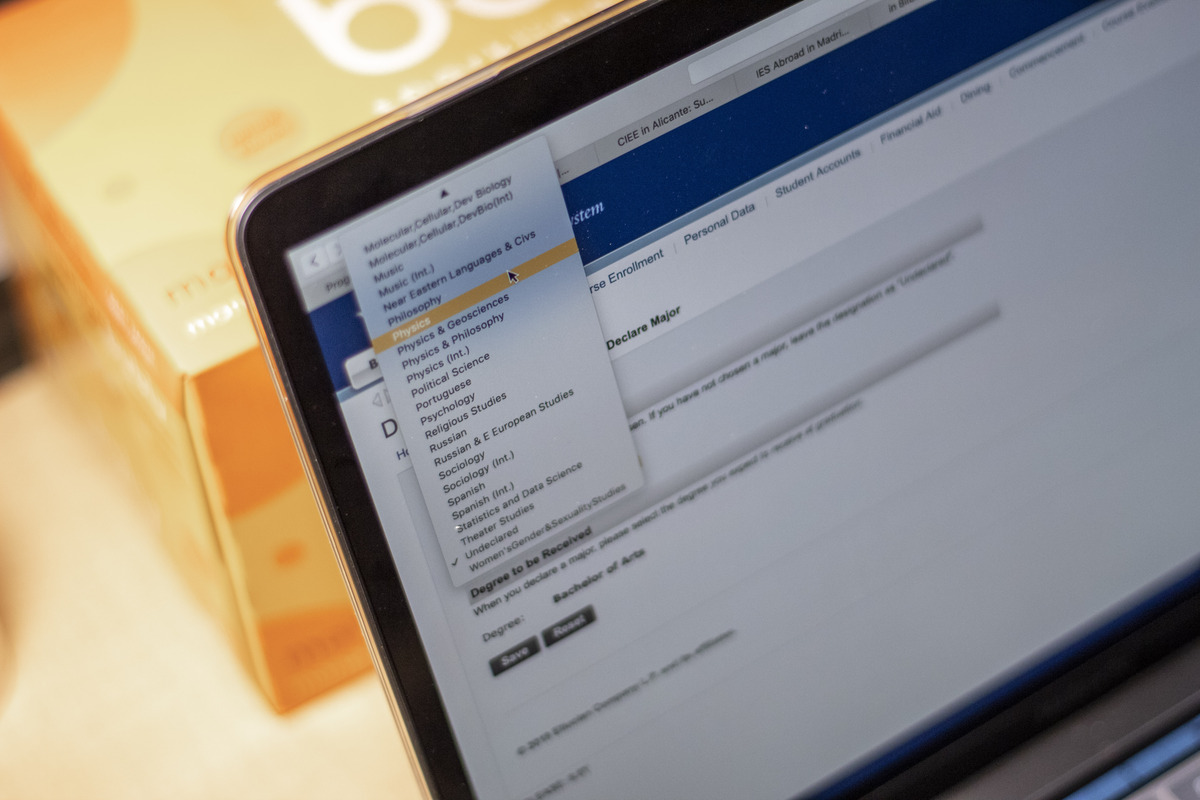Build-your-own-major: Yale’s overlooked special divisional major
The News spoke to the only two declared special divisional majors on why they chose to pursue it and the ups and downs of doing so.

Zoe Berg, Senior Photographer
For students dissatisfied with the regular major options offered at Yale College, there remains an oft-overlooked alternative: the special divisional major.
The special divisional major does not belong to any department or have uniform prerequisites or core courses. Instead, with the approval of the Director of Undergraduate Studies, two or more faculty advisers and the Committee on Honors and Academic Standing, students design their own majors, allowing them to focus on academic interests that cannot be met by an existing departmental or special major. Students in the major have to complete at least 13 term courses, or 14 if they work on a two-term senior essay or project.
“I want first years in particular to know that they have options,” Tulsi Patel ’23, who is a part of the program, said. “They can make Yale fit them. They don’t have to fit to Yale.”
As one of Yale’s only two special divisional majors, Patel designed her major in Digital Age Studies, in which she studies technology from different perspectives, mainly focusing on its sociocultural impact.
While she acknowledged that Yale offers many different fields of study, she said she found existing majors restrictive.
“[There are] very few fields that are focusing on the present and the way it’s shaping us,” Patel said. “A lot of stuff we learn is from when we look back at history and go, ‘Oh, this is what happened.’ But there’s stuff happening right now that we need to be aware of so we can protect the future.”
Patel found that there were individual courses from vastly different departments at Yale that viewed society from a current technological perspective. To her, the most fulfilling experience was incorporating these diverse classes and studying the Internet broadly in ways that would not be possible within the confines of an existing major. Courses included in her curriculum range from “Ethics of the Internet: Data, Algorithms, and Society” to “Interactive Design and the Internet: Software for People.”
Hannah Cevasco ’24 is pursuing a special divisional major in Computational Biology. Unlike Patel, versions of Cevasco’s major exist at other universities like Stanford and MIT. Pursuing the major was just specializing in an established field that Yale did not already have, she said, instead of carving out a path herself.
Cevasco hopes that Computational Biology becomes a department at Yale in the near future.
While she was on the Committee on Majors, Cevasco helped approve a new track for Computational Biology & Bioinformatics in the Molecular Biophysics and Biochemistry major. The Committee on Majors, which consists of University faculty, Yale College Dean’s Office administrators and undergraduate students, is in charge of considering proposals for establishing new majors.
However, Cevasco admitted that she would still have chosen the special divisional major over both this MB&B track and declaring an Molecular, Cellular, and Developmental Biology major with the certificate in programming, even if these options were available to her a few years ago. She said that she values the flexible and personalized learning experience that the special divisional major offers.
“I’ve been able to take classes from a variety of departments including CS, MB&B, BENG and S&DS, whereas if I tried to double major in MCDB and CS, I would’ve had to take a lot more prerequisites and core courses that basically would have taken up my entire time at Yale,” Cevasco said.
The special divisional major requires the submission of an application, including letters of support from faculty advisers, to the Committee on Honors and Academic Standing. Students may apply to the major at any time from their fourth term of enrollment to one month after their seventh term of enrollment begins.
Dean Sarah Mahurin, the director of undergraduate studies for the major, wrote in an email to the News that prospective majors should set up a meeting with her to discuss how best to approach the application process, including strategies for proposing a curriculum with breadth and depth comparable to other majors within Yale College.
When crafting her major, Cevasco referred to the Computer Science and Molecular Biology major at MIT and the Biomedical Computation major at Stanford as guidance, then recreated a similar curriculum based on Yale’s classes.
During her preparation process, she consulted multiple people, including Amit Kaushal, the executive director of the major at Stanford, people in the biotechnology industry and faculty members at Yale, in order to put forward a proposal that she was confident Yale would accept.
Cevasco said that Yale’s faculty members, especially Dean Mahurin, have been a great resource in helping her achieve her academic goals in the major. However, she noted that a huge challenge has been finding more specialty classes that truly tackle computational biology at Yale, as most Yale artificial intelligence or machine learning courses, for example, are not specific to biological applications.
Both Patel and Cevasco believe that the special divisional major and its benefits could be more publicized at Yale.
Application forms for the major are available at the Timothy Dwight College Dean’s Office.







